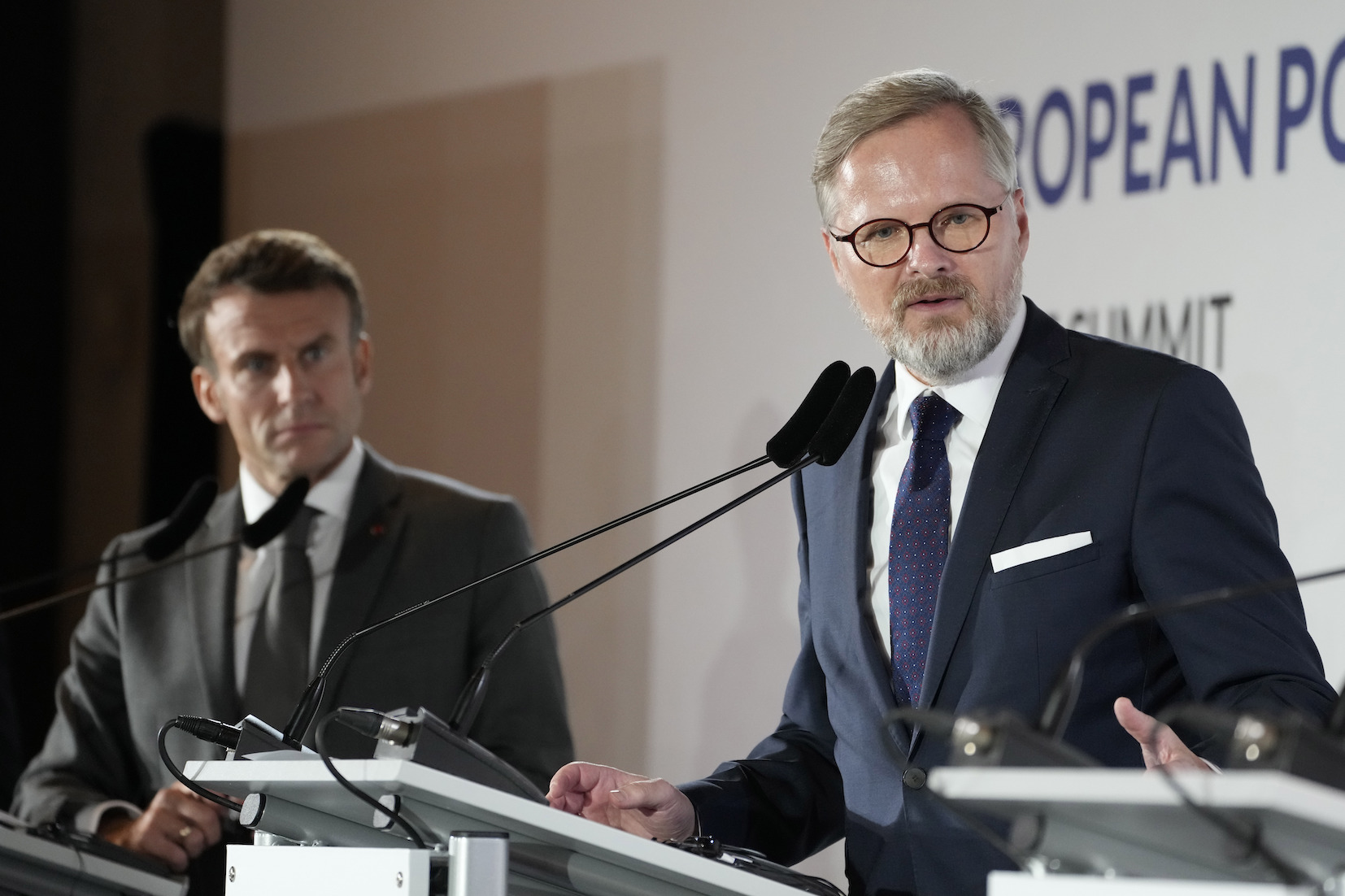On Friday, the governing coalition in Czechia pushed through a windfall tax (WFT) after months of debate, and already one company says it will move part of its operations aborad to avoid the tax.
The WFT is a very high tax that affects very few companies, specifically 10 — six banks with foreign owners, three energy groups with majority Czech owners, and a petrochemical group with a Polish owner. The ambition is to collect 85 billion korunas (€3.5 billion) from these companies next year as an advance on a tax on extraordinary profits.
The rate is 60 percent of profits exceeding the average profit of 2018 to 2021 by more than 20 percent. The government promises to spend the money collected from this tax exclusively to compensate for higher electricity prices for households and businesses.
The approval of the tax was preceded by a long debate about who should pay and why. For example, why only big banks with foreign owners would have to pay. At the same time, an even more important fight was taking place in the backroom under the radar of the media regarding exactly how the tax would be calculated and what business areas fall under it. These “details” could amount to billions in taxes.
Every company’s story is different. The logic of the tax is based on the fact that an extraordinary situation brought some companies extraordinary profits; that is, there are companies making extraordinary profits off of extraordinarily high prices, and the government is taxing thse entities to maintain “solidarity.”
Three areas were chosen: banks, energy, and petrochemicals.
A detailed debate then started on how to impose the tax. Some of the companies in question have several types of businesses together in one group, which included areas affected by the tax, as well as those areas, according to the government, that should not be affected.
Therefore, it was decided that the tax will actually be paid not from the entire groups, but only from the profits from these areas.
When something so extraordinary is about to happen, the “details” will ultimately decide the billions, from the point of view of the state that enforces the law. For a specific company, that detail is worth billions of korunas.
Either on purpose or in the chaos of preparations, Finance Minister Zbyněk Stanjura included income from abroad in the profits to be taxed. In layman’s terms: Money that those Czech-taxed companies did not earn from Czech customers, but from German, French, or American customers. This appears to some extent in all affected energy suppliers — they sell part of their production to foreign customers. On a really large scale, however, it is the story of Daniel Křetínský‘s Energy and Industry Holding (EPH), the largest Czech company in terms of sales. It has power plants all over Europe, from France and Italy to Slovakia. In addition, it also trades energy in bulk and owns gas pipelines as well as reservoirs. As a result, income from the Czech market is not the most important part of EPH’s profits.
This year, EPH’s net profit for the first half of the year reached 31.3 billion korunas (€1.3 billion). This is a 133 percent increase over the previous year. Gross profit before depreciation and taxation (EBIDTA) was 41 billion korunas (€1.7 billion). If the second half of the year is the same, EPH will earn around 62 billion korunas (€2.5 billion) in net profit. If we compare the results with the average of the previous figures from which the windfall tax is calculated, it means that the state will collect tens of billions of korunas from the new tax.
Daniel Křetínský played an important role in the negotiation of new taxes and price caps in the energy sector. In the end, however, he failed to convince Fiala’s coalition to exempt income from abroad from taxation.
EPH, therefore, announced shortly after the tax’s approval in the House that it would move one of its companies, EP Commodities, to another country in direct response to the new tax. It is just one part of the holding company, which last year had a gross profit of 2.4 billion korunas with revenue of 357 billion korunas. This year, he expects sales of 500 billion korunas.
EPH stated that if it had not moved, EP Commodities would have paid 1 billion korunas to the state in income tax alone. The tax on extraordinary profits would cost him about another 4 billion korunas with these results. By moving abroad, the state will lose 5 billion korunas. Prime Minister Petr Fiala points out that Civic Democrats (ODS) MPs tried to exempt income from abroad from taxation in the lower House, but they ran into resistance from coalition partners and did not gain ground.
Still, EPH has other businesses in Czechia, even with high profits, including foreign.
But the story of the tax on extraordinary profits does not end there. It now heads to the Senate, where further amendments can be expected. Then, the president will have the floor. A sharp fight from all sides can be expected. Never before in Czech history has the state wanted to take so much money from so few companies.






